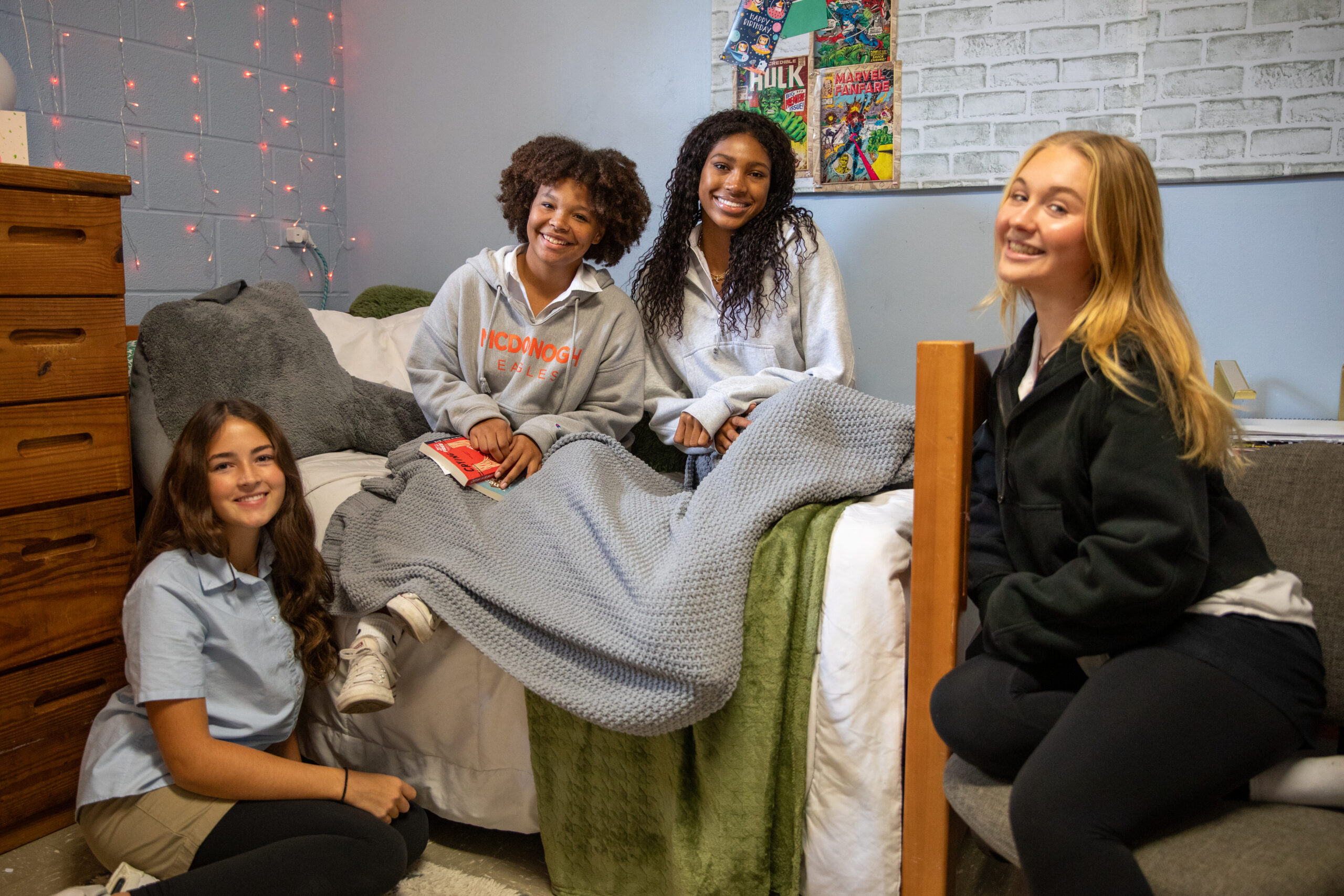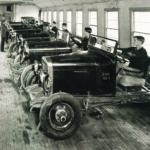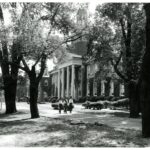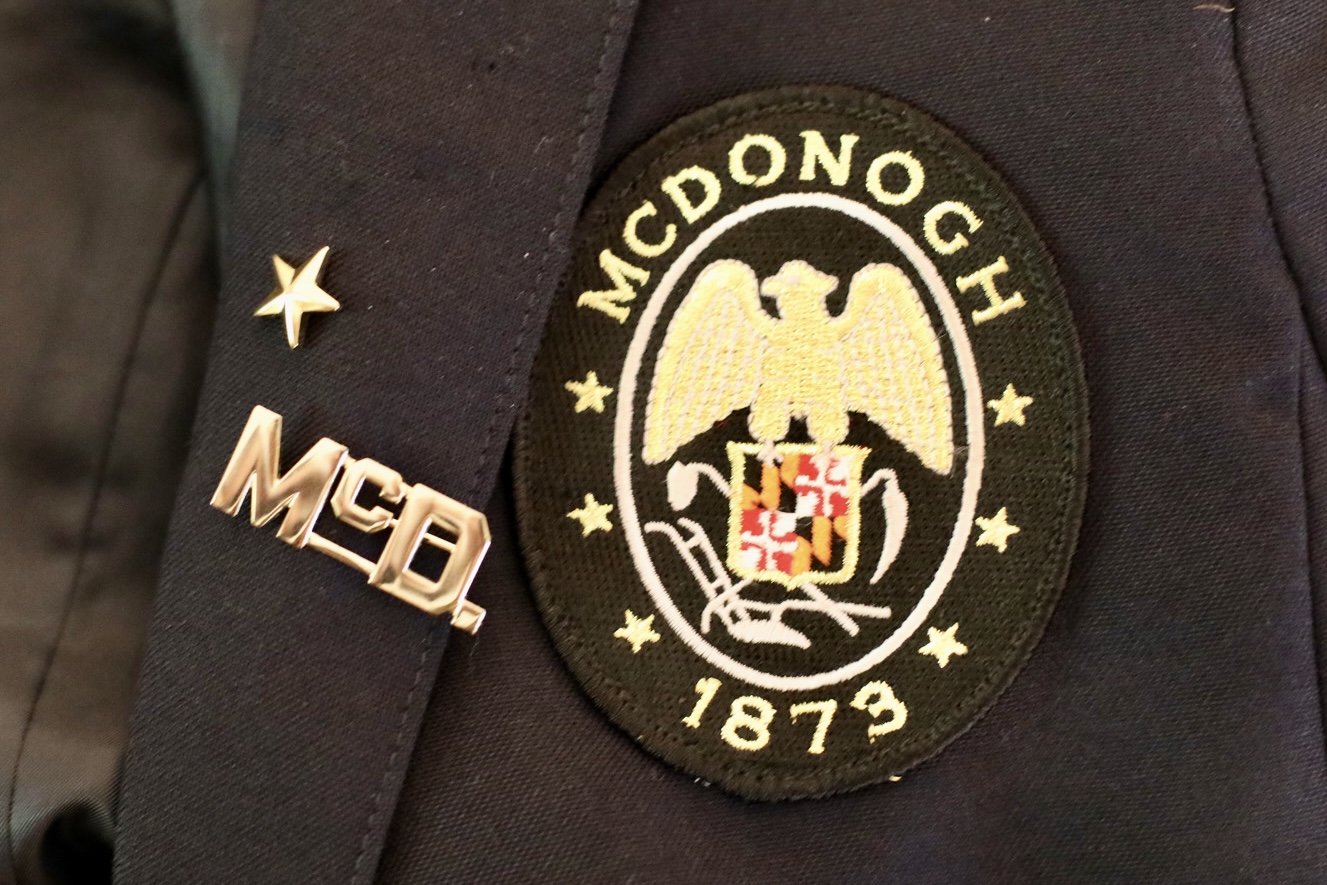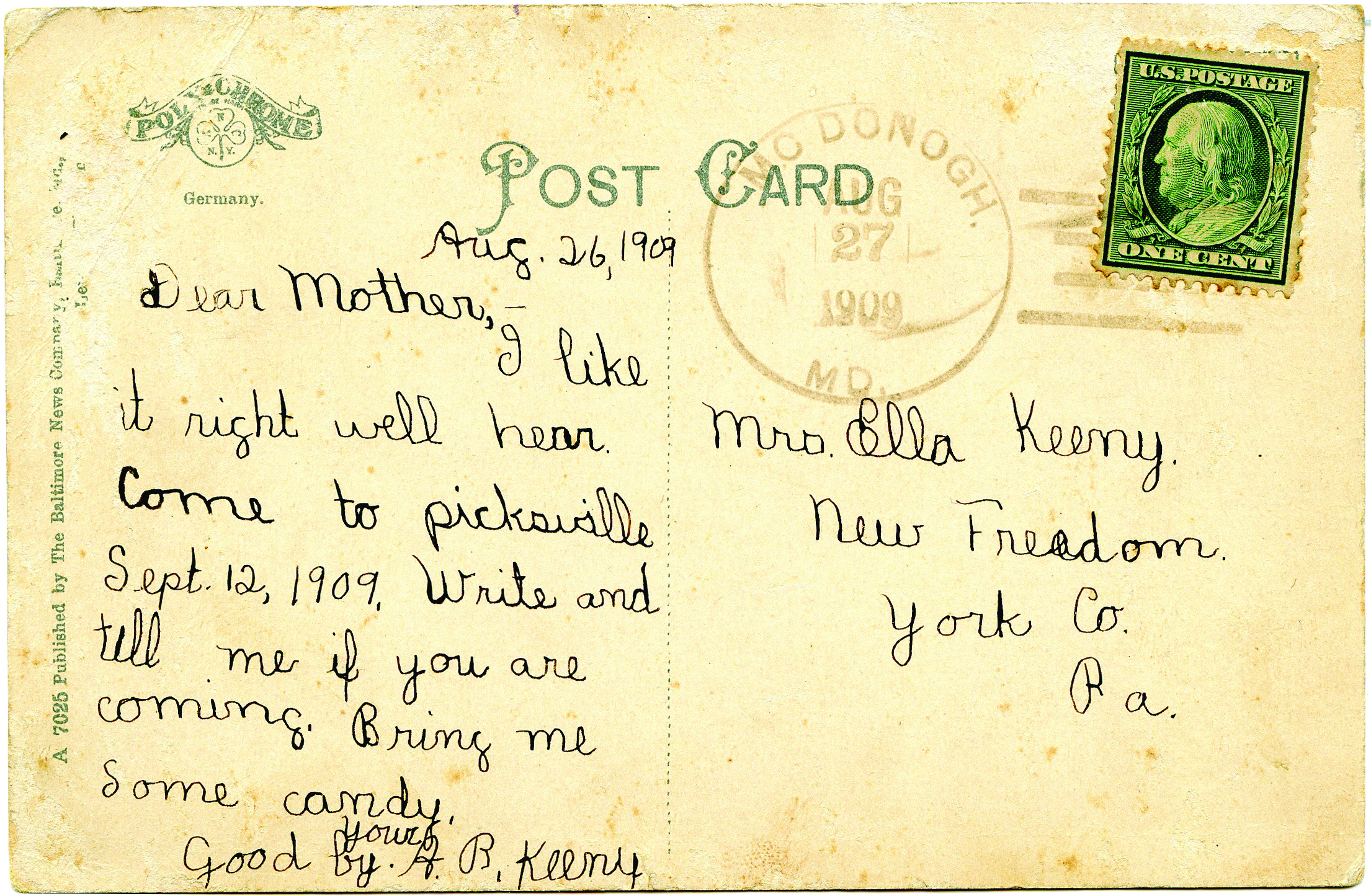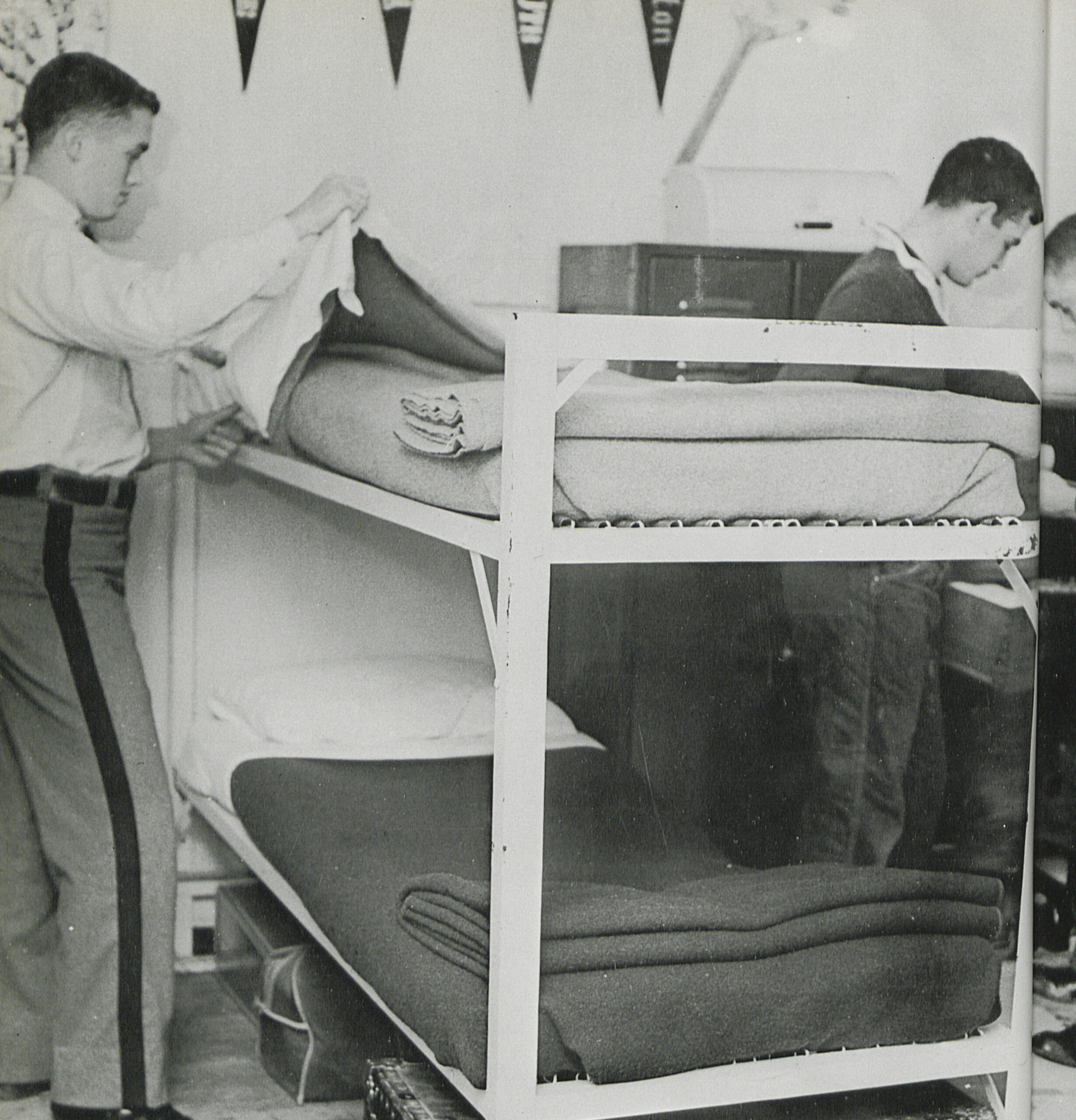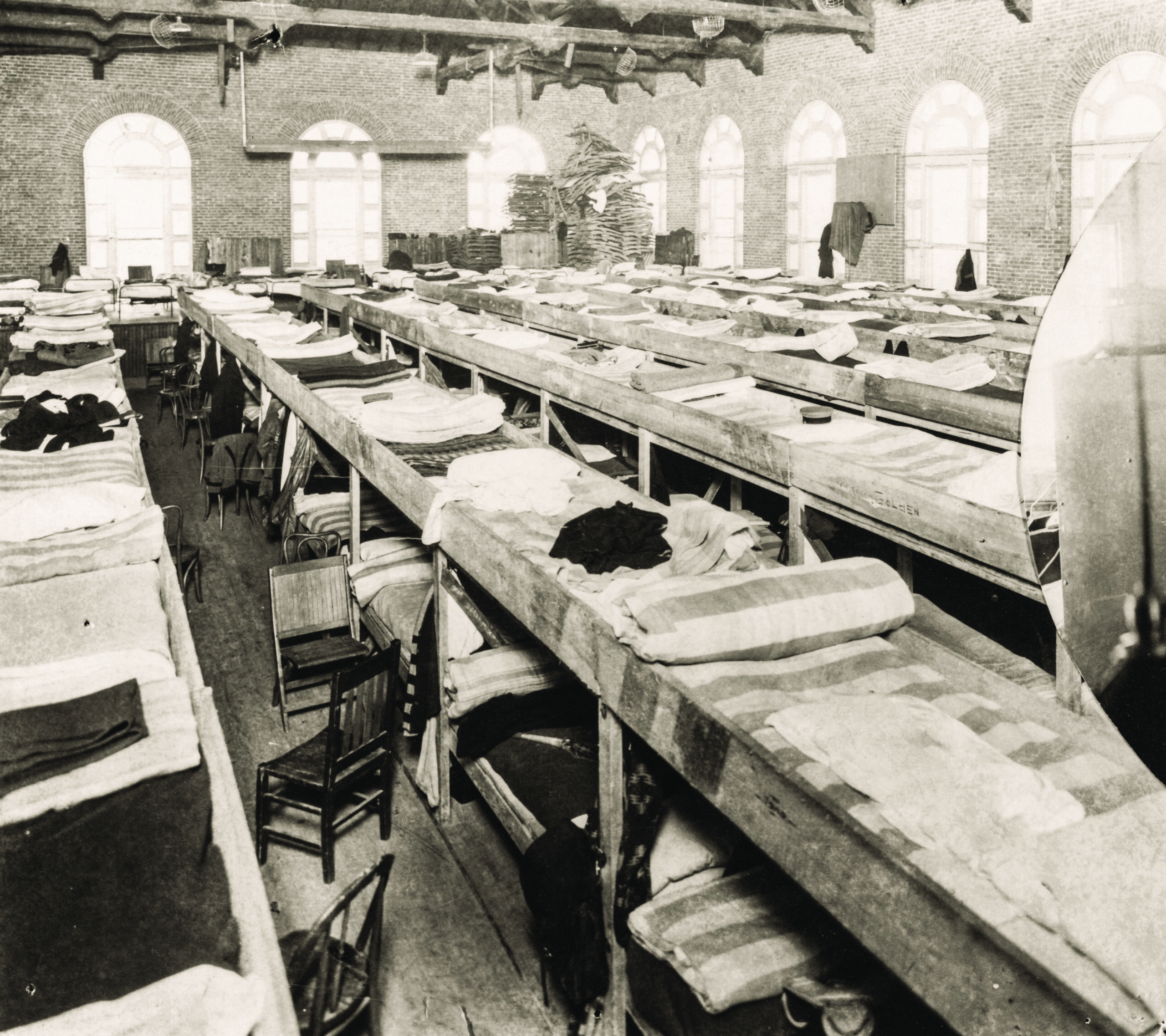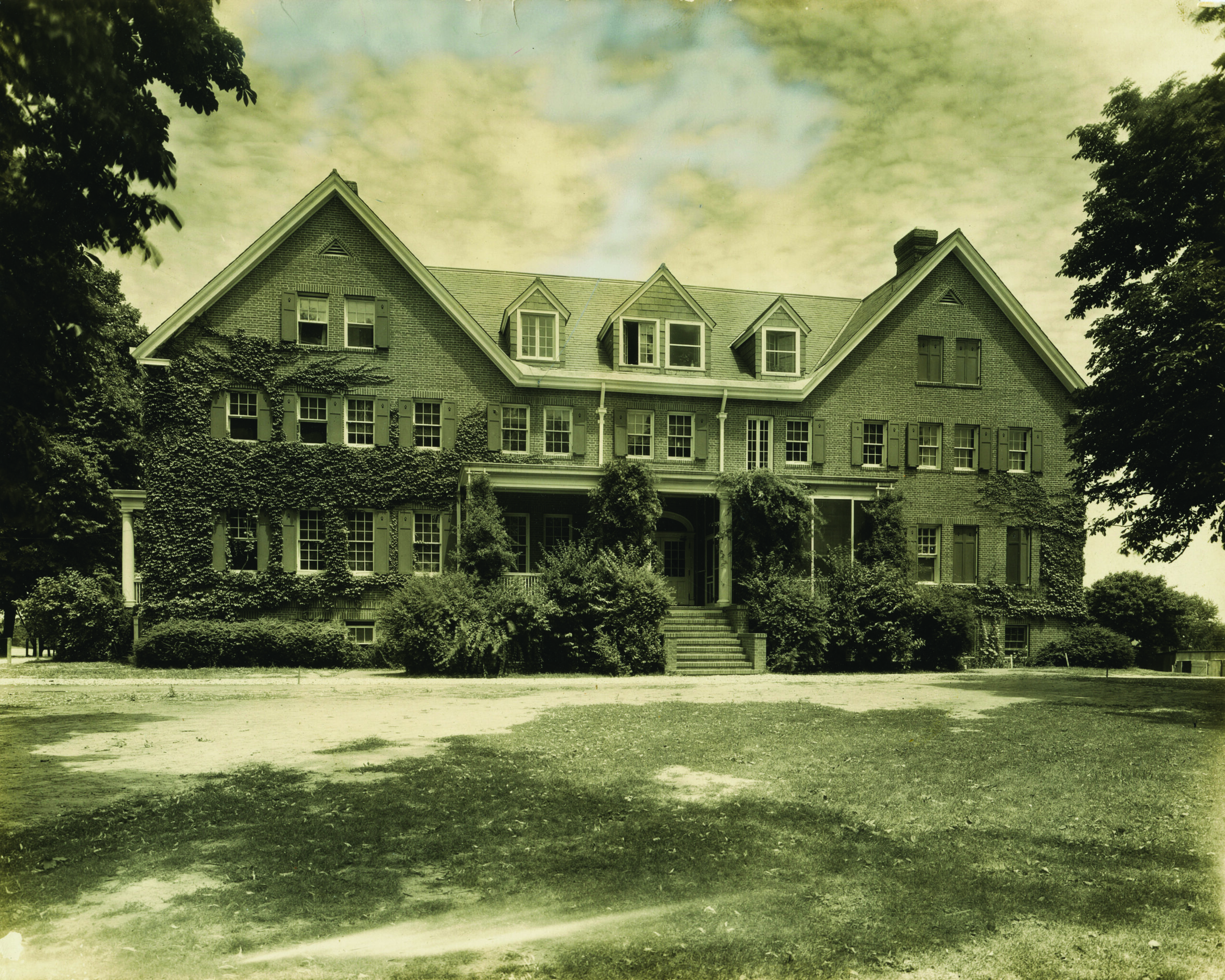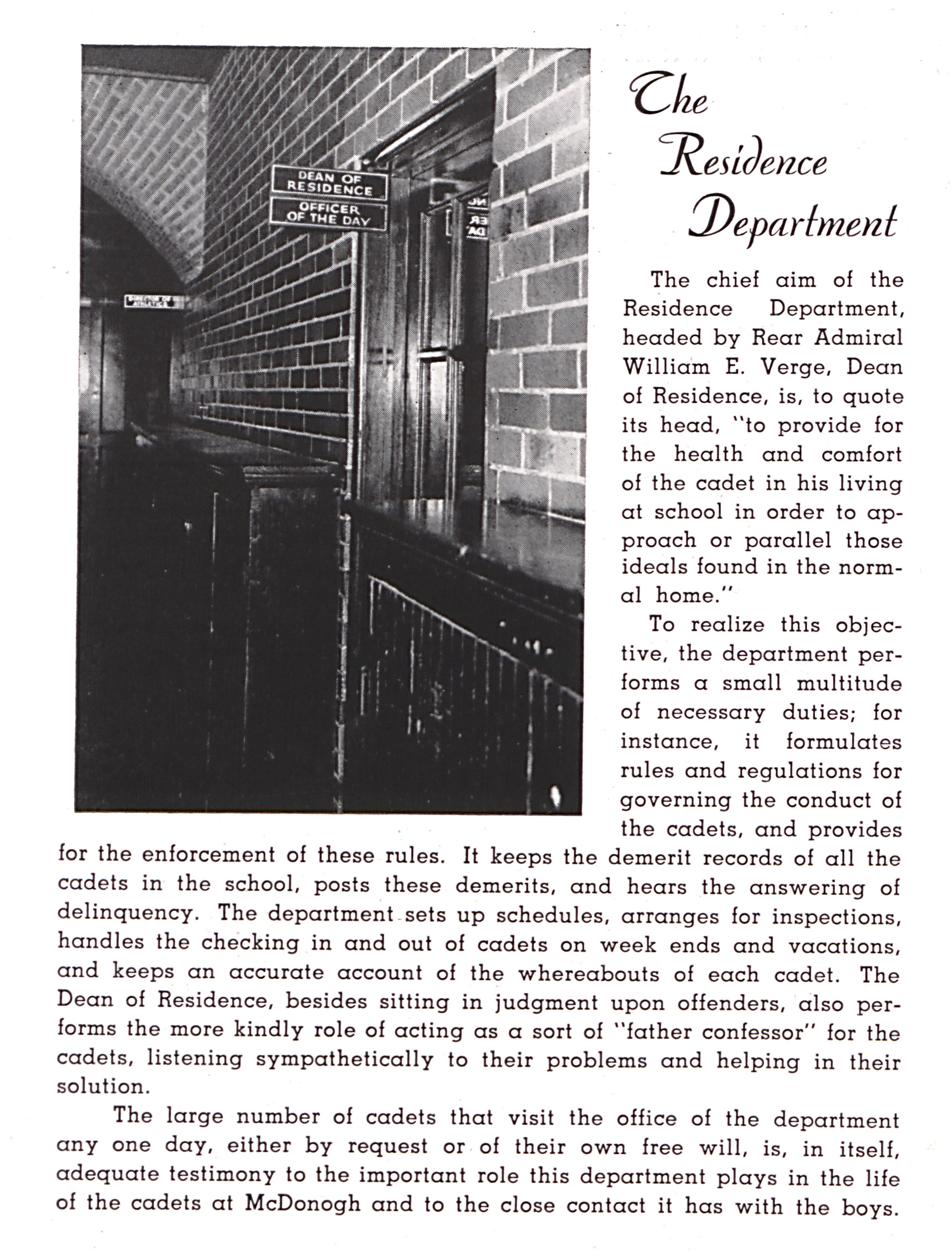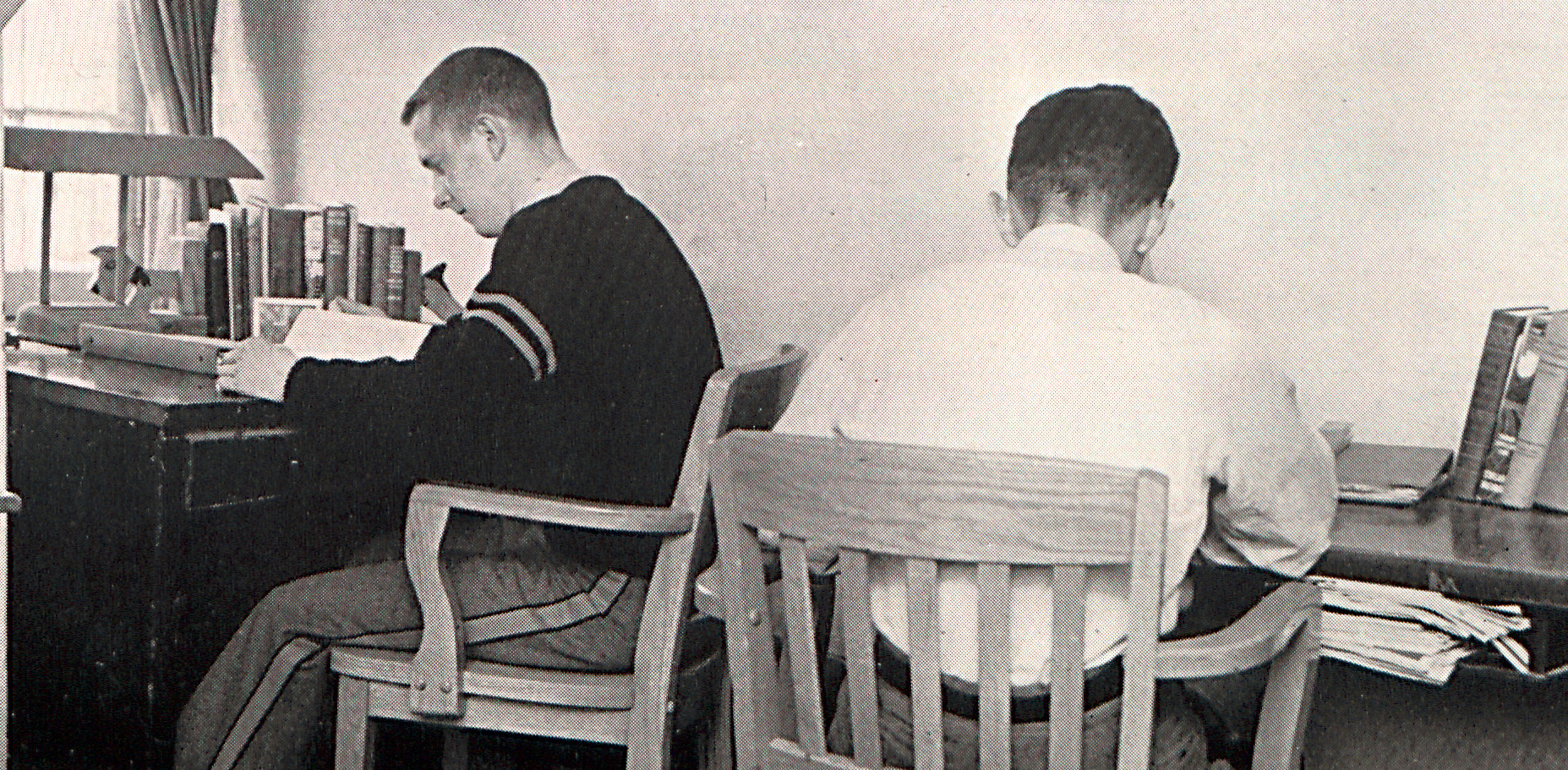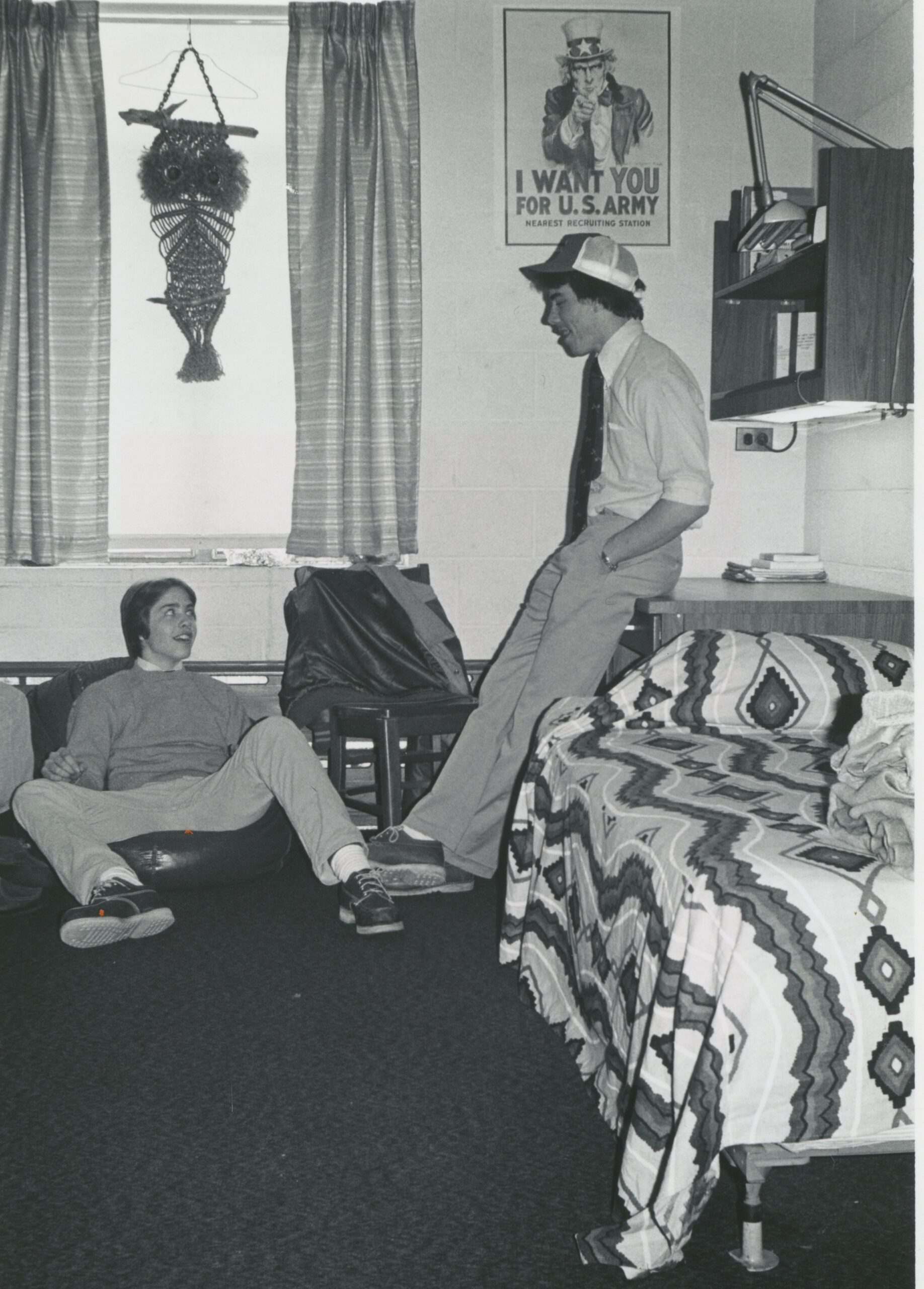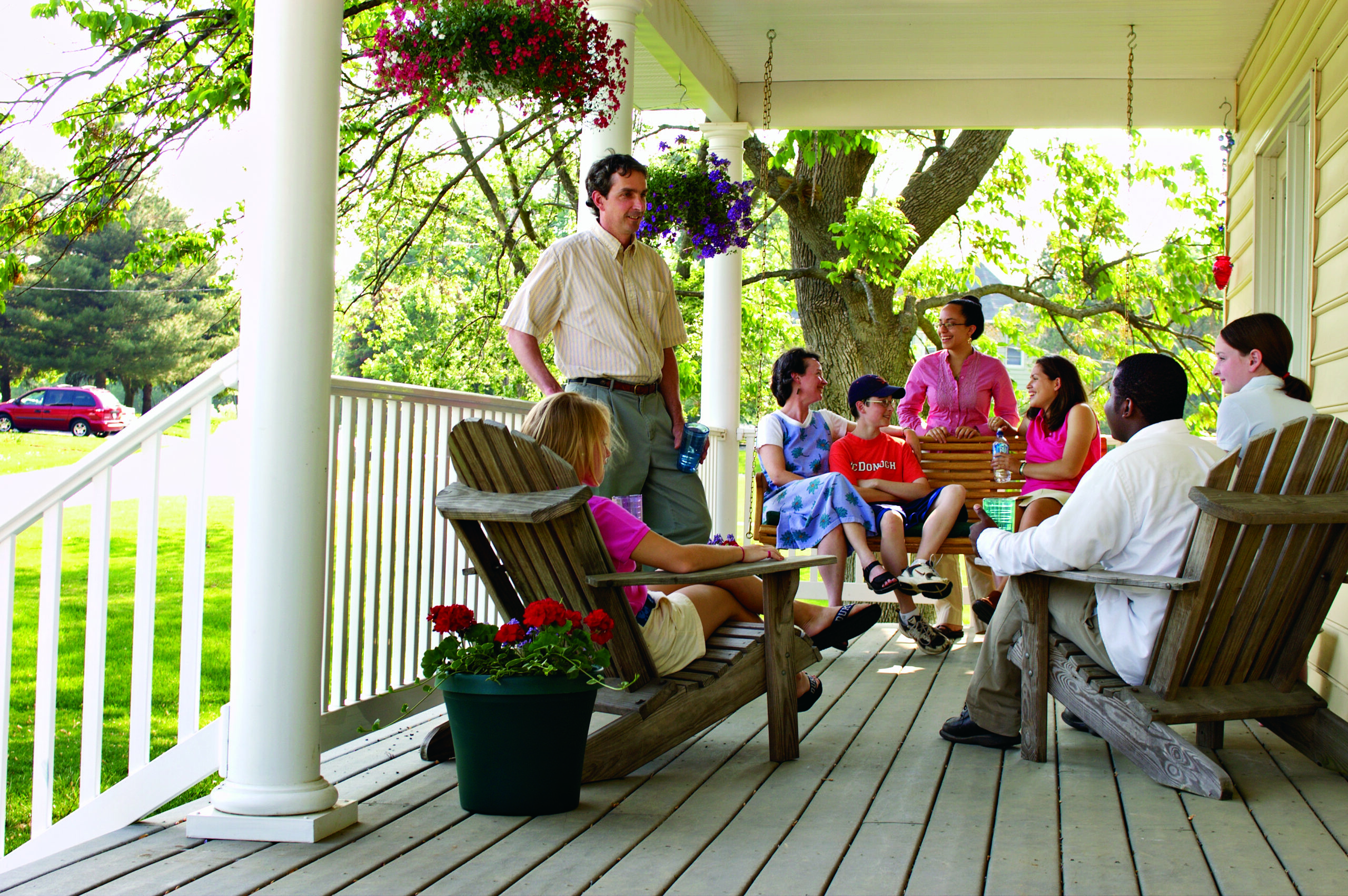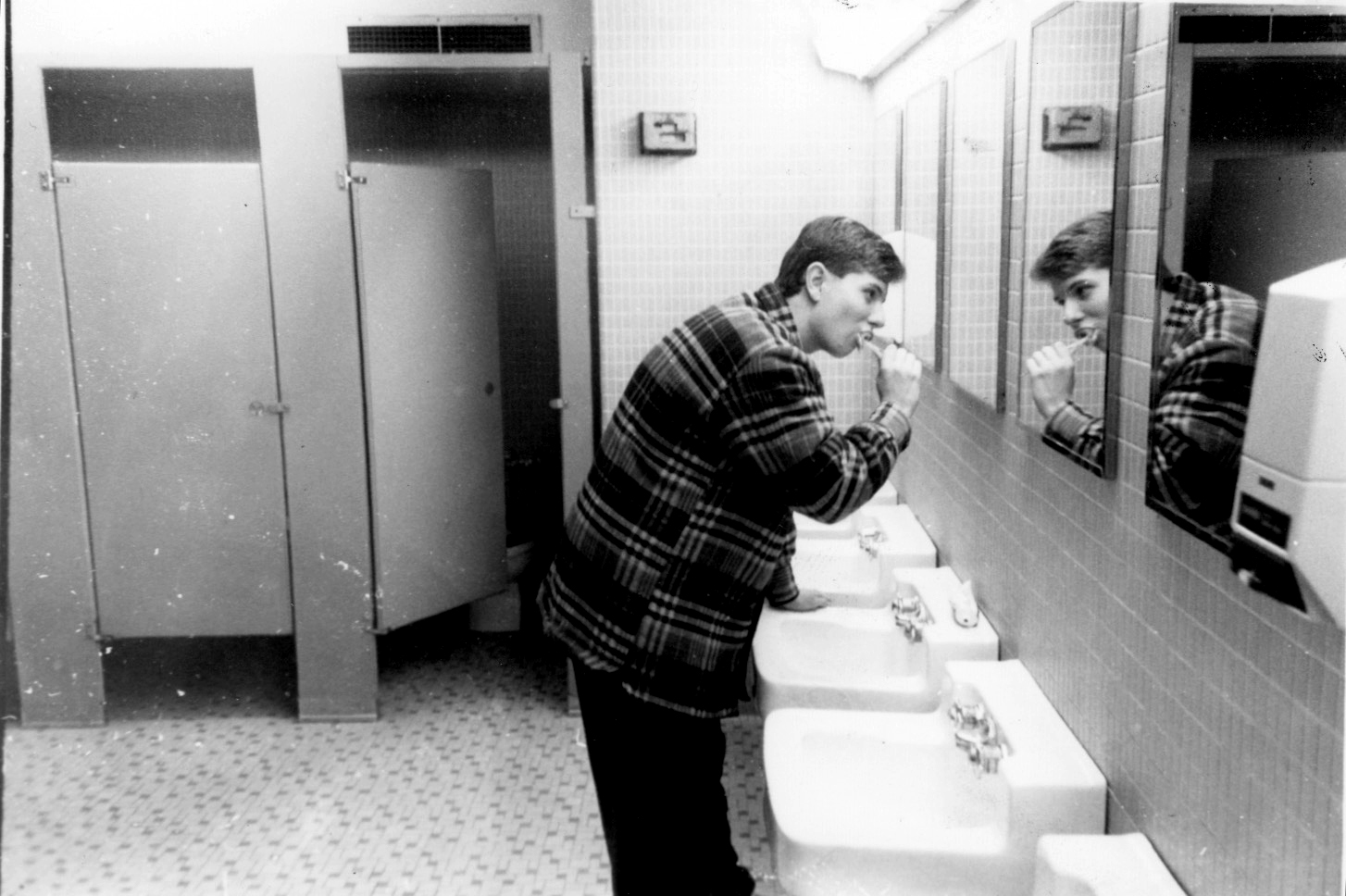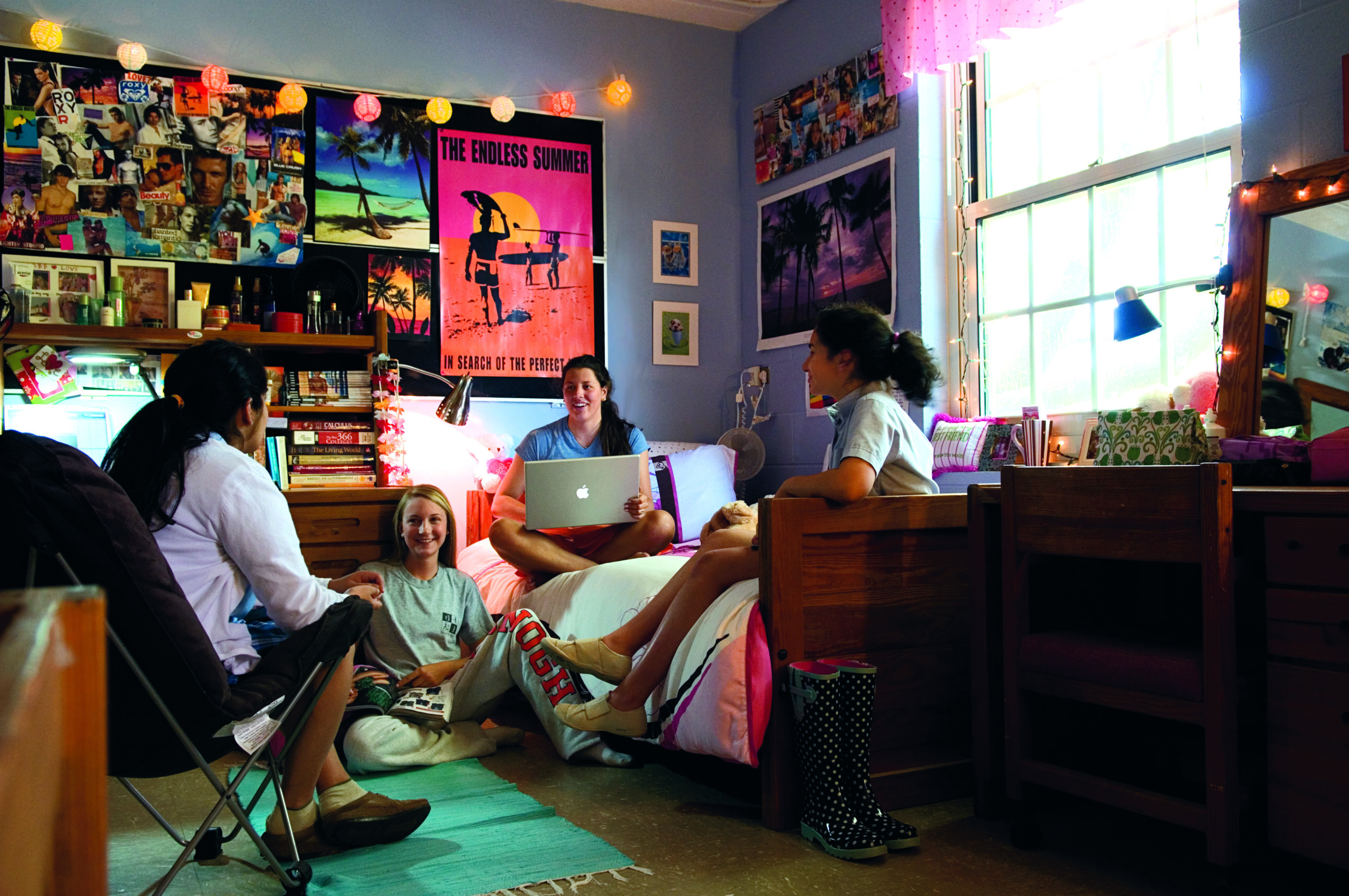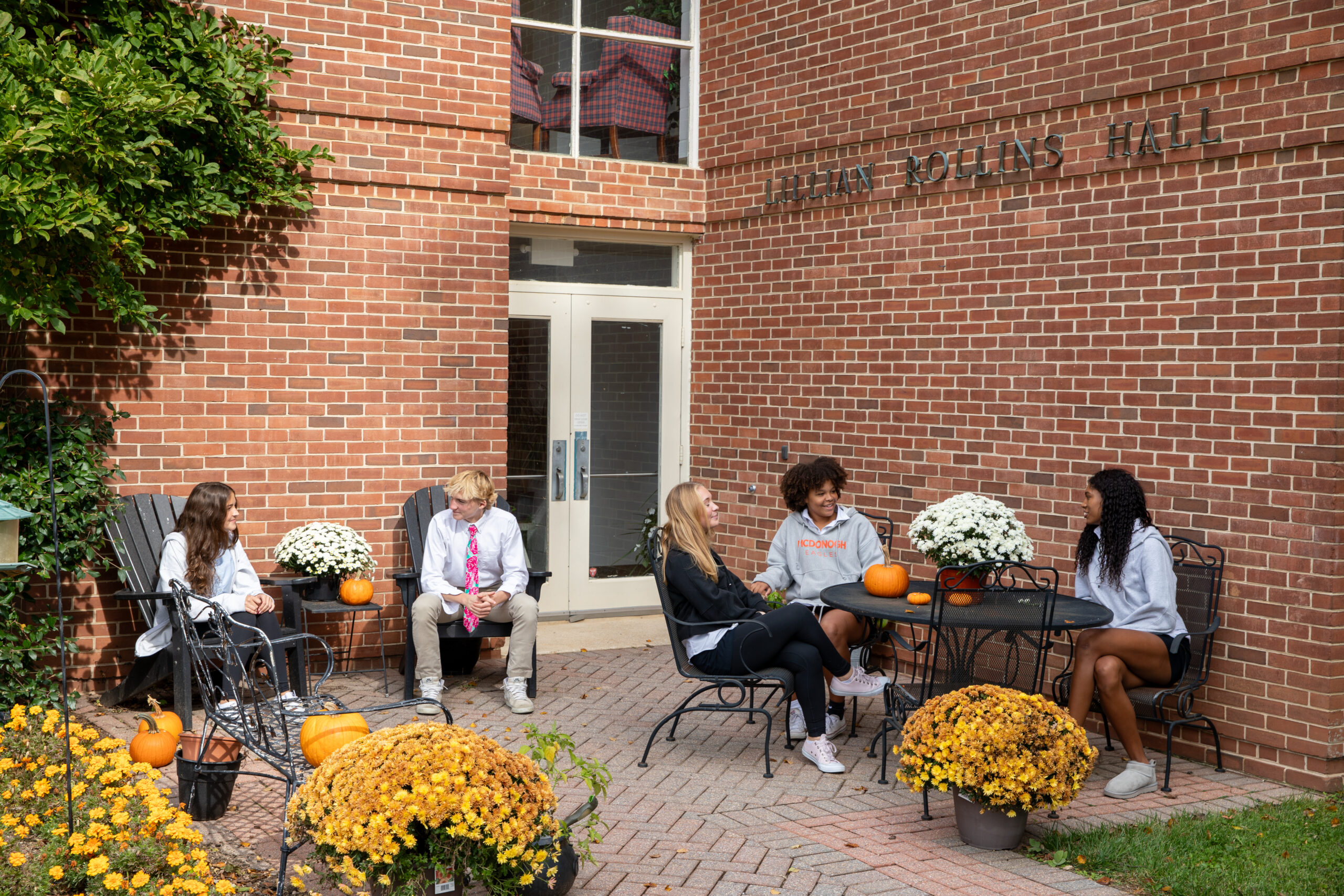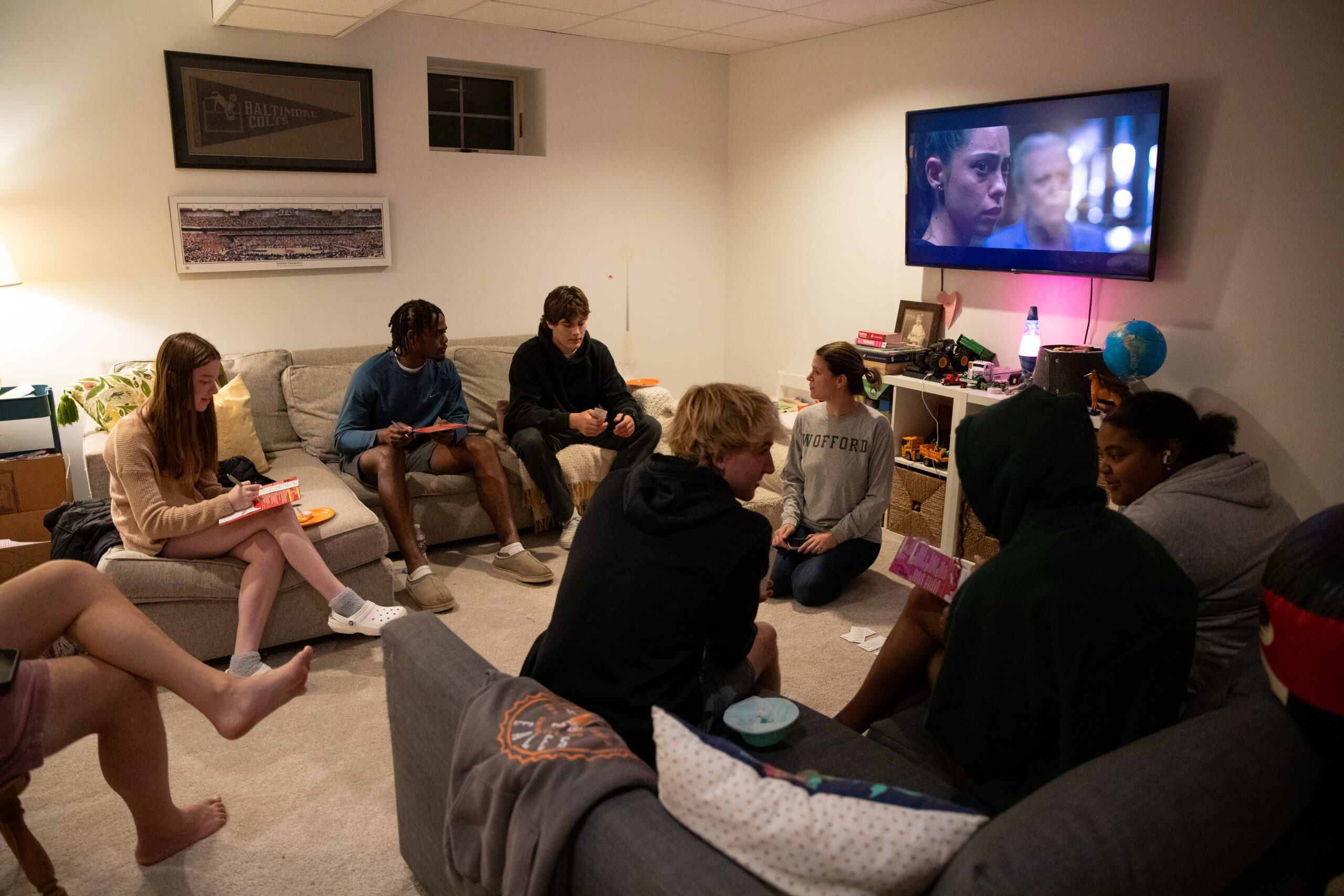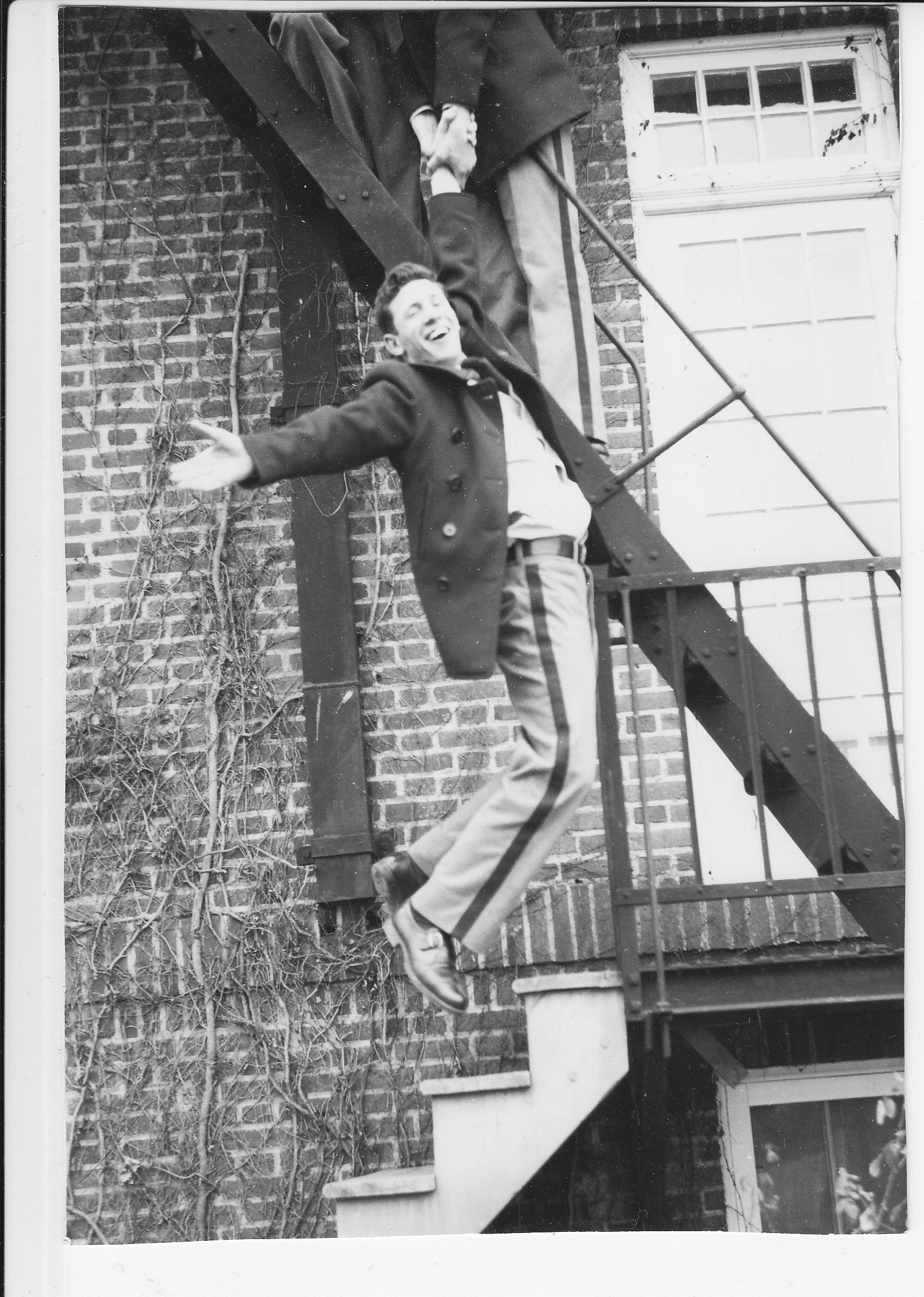McDonogh was a boarding school from day one, and in the early years, students only returned home occasionally. In 1874, there were four Visiting Days—from 2:30 to 6:00 p.m. on the first Saturday of May, August, November, and February. Vacations or “furloughs” were brief and depended on a student’s class standing.
In the late 1800s, the daily schedule for children of all ages was grueling. One account from 1898 describes a typical day starting at 5:30 a.m. The cadets made their beds and took care of their clothing, shoes, trunks, and lockers, and after washing up and morning prayer, they had breakfast at 6:30 a.m. Instruction began at 7:30 a.m. and lasted until a mid-day meal at 1:00 p.m. Afternoon activities included work on the farm, in the garden, at the carpenter shop, or in the printing office. From 4:00 to 6:00 p.m., the boys had leisure time for games before their supper. Later, the time would be filled with sports and military drills.
After supper, they had night school—a time for studying and practicing mathematical problems. At 9:00 p.m., students returned to their dormitories, and lights were turned out at 10:00 p.m. By 1914, the daily schedule and conditions in the dorms became less stringent. Younger boys were supervised by House Mothers, and everyone got more sleep.
In 1927, the Board formally authorized the admission of day students, and by September of that year, 20 were enrolled. Over the years, as the day student population grew, the number of boarders decreased. In 1961, the Lower School boarding program closed, and by 1978 the Middle School boarding program was phased out. Meanwhile, the 1975 admission of girls boosted boarding enrollment. The program continued to evolve, and in 1989, McDonogh became a five-day boarding school. With the change also came the addition of Rollins-Luetkemeyer scholars (a select group of senior leaders in the dorms) and the Campus Parents program in which campus residents welcome students into their homes for games and informal conversation.
Today, five-day boarding offers the best of both worlds. Upper schoolers enjoy all that the campus has to offer during the school week and enjoy family time at home over the weekend. Students find that living on campus makes it more convenient to participate in McDonogh’s many extracurricular activities and gives them opportunities to study, make new friends, and build community with campus residents. They also develop the independence, self-discipline, and personal responsibility needed in college and beyond. Read more about Boarding at McDonogh today.
